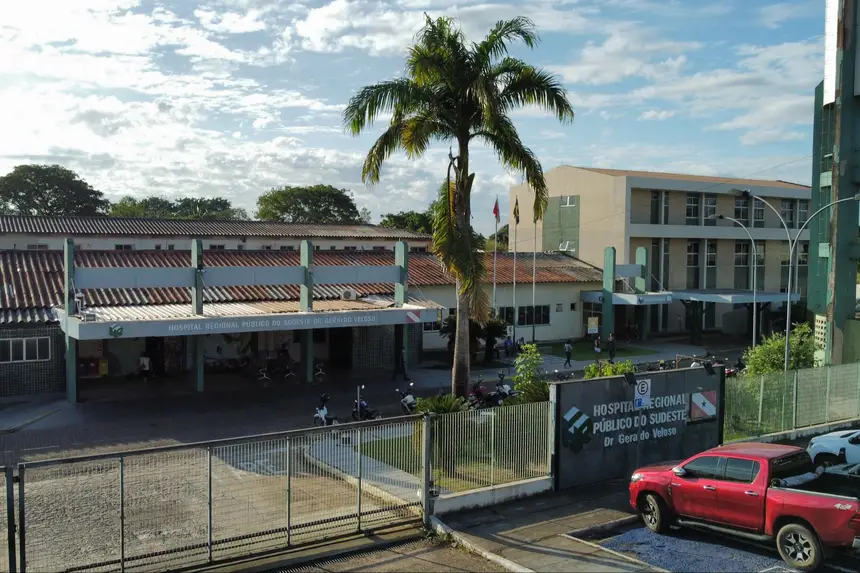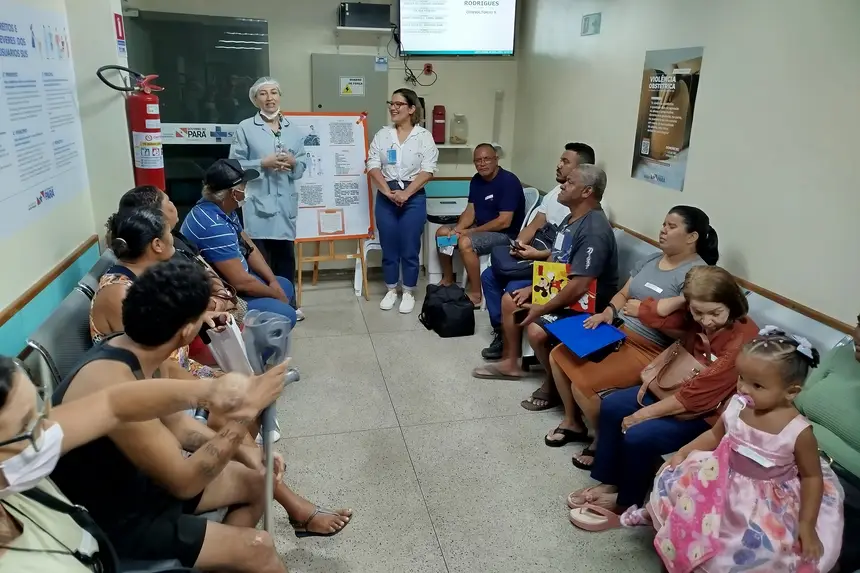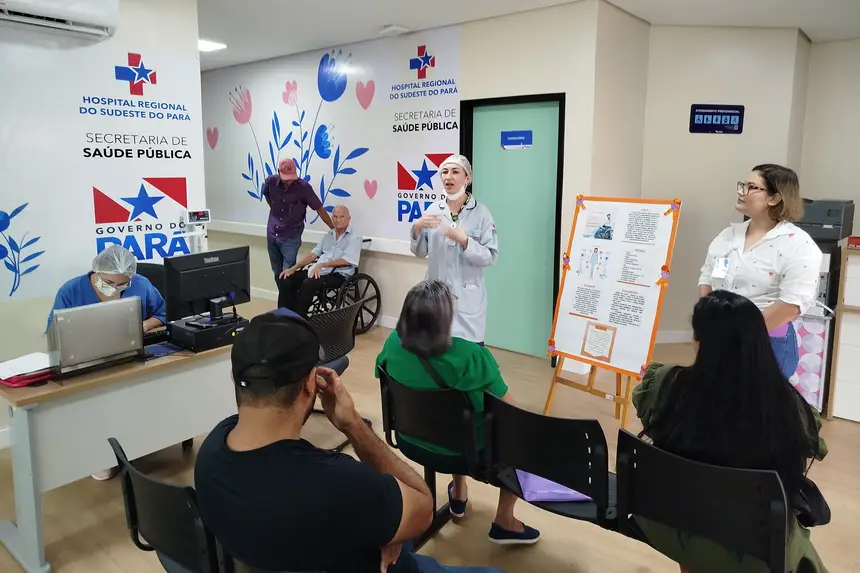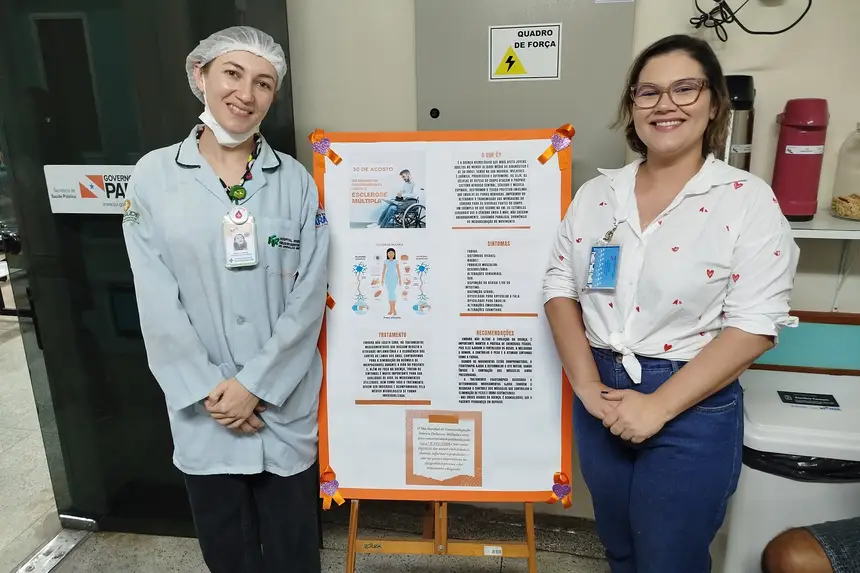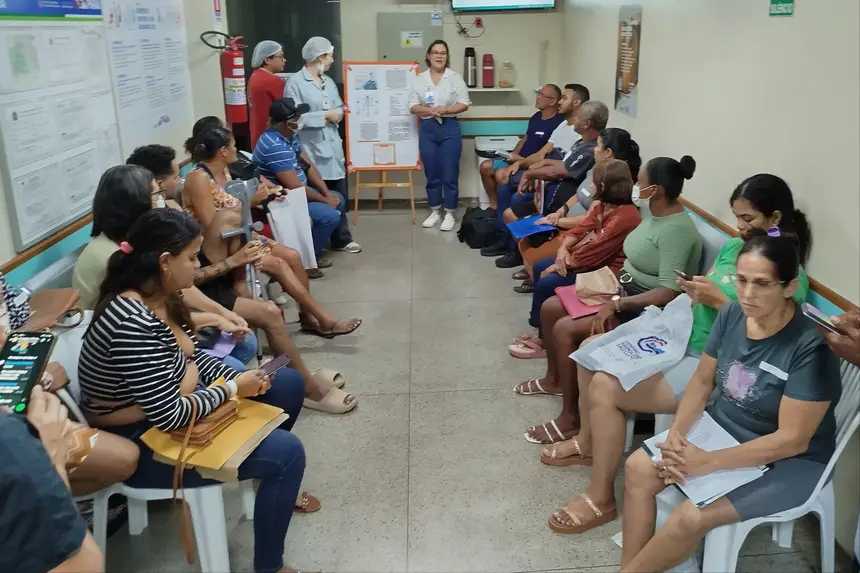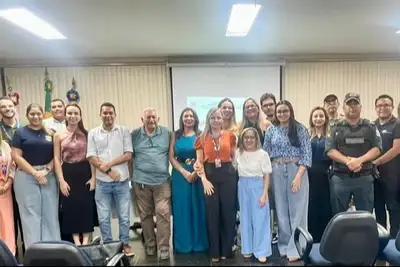Regional Hospital of Marabá combines care and learning in a conversation circle about multiple sclerosis
Users received accessible information about the symptoms and treatment of the disease while waiting for care at the unit
At the Regional Hospital of Southeast Pará – Dr. Geraldo Veloso (HRSP), in Marabá, in the Carajás Integration Region (RI), the waiting time for users for consultations and exams is transformed into learning with the "Health in Focus" project, which offers information and educational guidance. This Thursday (4), the theme was Multiple Sclerosis, with accessible explanations about symptoms, diagnostic methods, and treatment possibilities for the neurological disease.
Maria do Carmo, 52 years old, a resident of Marabá, was waiting for a consultation with the otorhinolaryngologist when she participated in the activity. "I found it important because I didn't know about the disease, and many times we fail to seek help due to lack of information and guidance. It's a simple care, but it makes a difference in our health," she emphasized.
From Itupiranga, in the Tucuruí Lake Region, Antônio Oliveira, 60 years old, was waiting for an X-ray exam and said that the experience changed his perception of waiting. For him, receiving information while waiting for care broke the monotony of the hospital. "I had never participated in an action like this, and I liked it very much. The wait became different, more productive, and I even learned about a topic I didn't know," he highlighted.
The humanization project "Health in Focus", carried out at the Government of Pará unit, shows that care goes beyond medical attention. By transforming the wait into a space for dialogue, the project brings patients closer to knowledge, stimulates curiosity about their own health, and strengthens the bond of trust between the population and the hospital.
Transformative learning
The lecture, conducted by nurse Marília Sampaio, presented the characteristics of multiple sclerosis, its symptoms, and treatment possibilities. In a close and accessible dialogue, patients clarified doubts, received self-care guidance, and understood the importance of seeking medical help in the face of the disease's signs.
"Multiple sclerosis is a disease that affects the central nervous system and can cause fatigue, vision changes, difficulty walking, and loss of muscle strength. Recognizing the signs and seeking specialized care is essential to ensure quality of life and control the progression of the disease," explained the professional.
The nurse emphasized that, although the disease has no cure, treatment offers control to patients. With appropriate medications and medical follow-up, it is possible to reduce crises, delay the disease's progression, and preserve autonomy. "When started early, treatment helps maintain activities, improves quality of life, and allows facing the disease with dignity," Marília highlighted.
She also reinforced the importance of daily care that can help in living with the disease. "There is no specific way to prevent multiple sclerosis, but healthy habits make a difference. Maintaining a good diet, exercising, sleeping well, and having regular check-ups are actions that strengthen the body and help face challenges with quality of life," she concluded.
Neurological assistance
The Hospital, managed by the Institute of Social and Environmental Health of the Amazon (ISSAA) and the State Department of Public Health (Sespa), offers specialized outpatient care in neurology, an essential service for patients who require continuous monitoring in cases of diseases affecting the nervous system.
The unit also has high-complexity exams, such as magnetic resonance imaging and computed tomography, which ensure greater accuracy in diagnosis and assist in the management of various neurological conditions. This structure reinforces the hospital's commitment to combining technology and human care, ensuring complete and quality assistance to the population of the southeast region of Pará.
"By integrating information, welcoming, and quality medical assistance, the Hospital increases the chances of early diagnosis, ensures appropriate treatments, and reaffirms that care goes beyond the walls of the office, reaching each patient in their life journey," highlighted Flávio Marconsini, executive director of the unit.
Structure - The care at the Regional Public Hospital of Southeast is 100% free, linked to the Unified Health System (SUS). The unit has 135 beds, including 97 for clinical hospitalization and 38 for Intensive Care Units (ICUs).
Text: Ederson Oliveira


